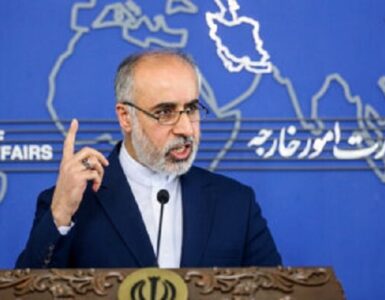The slogan ‘ Make America Great Again(MAGA)’ was code for making America white again.
In the copious commentary on the ascendancy of populism of the Donald Trump variety, what has been egregiously elided over is the realm of culture. While this commentary has been both the plain vanilla variety and of a profound nature, typically what has been dwelt upon is politics, policy, globalisation (which partly has a cultural ingress)- all of which stand implicated in populism- the realm of culture, if dwelt upon, has only been alluded to. But it is all too important to be ignored- by omission or commission.
To get a handle on this particular theme, I will briefly touch upon policy, politics and globalisation, and by elimination arrive at the conclusion, to borrow a phrase from the late Samuel Huntington, ‘ Why Culture Matters’.
Consider the domain of policy. It is held that the ‘neoliberal’ policy straitjacket best encapsulated in economic terms in the ‘Washington Consensus’, that proselytized openness, free trade and capital flows led to ‘unintended consequences’ that had perverse outcomes even in the United States. The proof that is adduced for this is the ‘de-industrialization that, among other things, led to the hollowing out of the working class in the country. Moreover, flowing from this brand of economics and its primacy in the major institutions of global governance, the political economy consequences were skewed, in terms of income distribution, as gleaned from the Gini co-efficient and thereby had class conflict consequences.
There is merit to these explanations but only up to a point. As in every trend or phenomenon, there was more than meets the proverbial eye. These sets of explanations, while partly, right, could be said to be reductive that do not entirely capture the complexity of the American condition.
Politically, ‘the end of ideology’, in the great Daniel Bell’s memorable phrase, in the United States and the West, broadly speaking, that had cleaved these societies, led to a focus on ‘’ which Bell calls, ‘ the expression and remaking of the self in order to achieve self-realization and self-fulfilment. And, in its search, there is a denial of any limits and boundaries to experience. It is a reaching out for all experience; nothing is forbidden, all is to be explored’. In this ‘quest’, lifestyle and choices thereof became the fulcrum around which politics foreground itself, especially on the left of the political spectrum.
With respect to globalisation, a combination of the foregoing focus of politics that led to liberal immigration policies and a quasi-Marxist analysis of the capitalist dynamic seeking new markets for consumption created a homogenizing dynamic within and without the United States. (By way of a disclaimer here, I disavow being a follower or adherent of any of the creeds). A cacophony over rights ensued and what emerged was the politics of multiculturalism.
In all these, culture was ignored and relegated to a postmodern chic ethic of relativism. It was also held to be a mere construct that would dissolve with the passage of time. But culture- in one sense, ‘a patterned way of life, and the artefact of history, ritual, religion and so on ‘ or in another parlance the superstructure of society, would not go away. On the contrary, it, in the United States, made a vociferous and vigorous comeback. The white superstructure of the country rebelled against what it saw as cultural encroachment on its turf- a condition deftly recognized by Donald Trump and responded to in the idiom of populism.
The slogan ‘ Make America Great Again(MAGA)’ was code for making America white again. While many saw this colour coded slogan in racial terms (which it was to some extent) , but its gravamen was cultural. Validated by demographic change in the United States, the white superstructure of the country perceived itself under siege and on the cusp of being a minority, and thereby the United States losing its ‘essential’ character.
While all the explanations referred to in this essay have merit, but this is not proportional. In the final analysis, it was and is a culture that trumped policy and politics, even as each contributed to the clamour for its revival. Delineating this vital aspect is well and fine, but what lessons can be drawn from it?
The answer, at the risk of being tautological is, ‘ culture matters’.
These must-have policy implications. Conventionally and typically, policy formulation and execution is focused on ideation, process and output(or outcome). These are both constants and variables that go into the craft of policymaking. But as the American experience suggests, when crafted in isolation and when culture and cultural issues are not considered, in the least, as important variables, policy(ies) can have perverse consequences.
Lest the world is unmoored and be caught in a maelstrom of policy and political ideas that are merely informed by reason and rationality, it then is in the nature of an imperative to consider culture as a vital component in policymaking, in its own right. The United States illustrates this all too vividly. Let the world take note.





